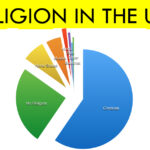Culture of United Kingdom (UK)
Pattern of human activities and symbolism which is associated with UK and people who are living in this kingdom is known as the Culture of UK. UK is developed island country, liberal democracy and major power but its Culture is influenced by the history of UK. Christian Religious life is predominant in history of UK as well as in developed UK. As we know that there are 4 countries England, Wales, Scotland and Northern Ireland which are located in UK but each of them as different and unique culture, custom and symbolism. Culture of UK is known as British culture in broader term and it is influenced by the culture of Europe. Three main qualities of its culture including Humanism, Democracy and Protestantism are developed from western culture.
The way of life of the United Kingdom is affected by the UK’s history as a created island nation, a liberal vote based system and a noteworthy power; its overwhelmingly Christian religious life; and its synthesis of four nations—England, Wales, Scotland and Northern Ireland—each of which has unmistakable traditions, societies and imagery. The more extensive culture of Europe has likewise affected British culture, and Humanism, Protestantism and delegate majority rule government created from more extensive Western culture.
English writing, music, silver screen, craftsmanship, theater, parody, media, TV, reasoning, engineering and instruction are imperative parts of British culture. The United Kingdom is likewise noticeable in science and innovation, delivering world-driving researchers (e.g. Isaac Newton and Charles Darwin) and creations. Game is an imperative piece of British culture; various games began in the nation, including football. The UK has been portrayed as a “social superpower”, and London has been depicted as a world social capital. The Industrial Revolution, which began in the UK, profoundly affected the financial and social states of the world. Because of the British Empire, noteworthy British impact can be seen in the dialect, law, culture and organizations of a geologically wide combination of nations, including Australia, Canada, India, the Republic of Ireland, New Zealand, Nigeria, Pakistan, South Africa, Sri Lanka, the United States and English speaking Caribbean countries. These states are some of the time on the whole known as the Anglosphere, and are among Britain’s nearest allies. In turn the domain additionally impacted British culture, especially British cuisine.
The way of life of England, Scotland, Wales and Northern Ireland are assorted and have shifting degrees of cover and uniqueness. Culture of United Kingdom includes Art, Literature, Media, Philosophy, Music, Theatre, Cinema, Television and Architecture is respected, important and consequential across the whole world. Sport is also an important part of British culture because of many sports including football, golf and cricket which are originated from UK, Scotland and England respectively. United Kingdom is also considered as a sign of Science and technology. People from different countries of this world has been described United Kingdom as a “Culture Superpower” and capital of this kingdom “LONDON” is considered as a world culture capital. Industrial Revolution was originated from this great island (UK) and had a distant and prominent effect on the Culture condition and Socio-economic condition of the world so we can say that UK has a very important role in different kind of revolution and development and in the result of this revolution and development influence of British culture can be measured by the institutions, culture and language in the world wide countries which are situated geographically wide from each other and the names of these countries are Canada, New Zealand, Australia, India, Nigeria, Republic of Ireland, South Africa, United states and last but not the least Pakistan. You can also observe the influence of British Empire in one very important thing which is British cuisine.
Literature
The mid eighteenth century is known as the Augustan Age of English writing. The verse of the time was very formal, as exemplified by crafted by Alexander Pope, and the English novel wound up noticeably well known, with Daniel Defoe’s Robinson Crusoe (1721). Finished following nine years work, Samuel Johnson’s A Dictionary of the English Language was distributed in 1755, and was seen as the pre-prominent British word reference until the culmination of the Oxford English Dictionary 150 years later. From the late eighteenth century, the Romantic time frame demonstrated a blooming of verse similar with the Renaissance 200 years sooner, and a recovery of enthusiasm for vernacular writing. In Scotland the verse of Robert Burns restored enthusiasm for Scots writing, and the Weaver Poets of Ulster were impacted by writing from Scotland. In Wales the late eighteenth century saw the recovery of the eisteddfod custom, propelled by Iolo Morganwg. A Vindication of the Rights of Woman (1792), by Mary Wollstonecraft, is one of the most punctual works of women’s activist theory
Theater
From its arrangement in 1707, the United Kingdom has had a lively convention of theater, a lot of it acquired from England and Scotland. The West End is the primary venue locale in the UK. The West End’s Theater Royal in Covent Garden in the City of Westminster goes back to the mid-seventeenth century, making it the most established London Theater. Opened in 1768, the Theater Royal at the Bristol Old Vic is the most seasoned ceaselessly working venue in the English talking world. In the eighteenth century, the highbrow and provocative Restoration satire lost support, to be supplanted by nostalgic parody, household catastrophe, for example, George Lillo’s The London Merchant (1731), and by a mind-boggling enthusiasm for Italian musical show. Well known stimulation turned out to be more vital in this period than any other time in recent memory, with reasonable corner vaudeville and blended structures that are the precursors of the English music corridor. These structures prospered to the detriment of different types of English show, which went into a long stretch of decrease. By the mid nineteenth century it was never again spoken to by arrange plays by any stretch of the imagination, yet by the storeroom show, plays written to be secretly perused in a “storage room” (a little residential room). Their Victorian period comic musical shows presented advancements in substance and frame that straightforwardly impacted the improvement of melodic performance center through the twentieth century.
In 1847, a faultfinder utilizing the nom de plume distributed a pamphlet portraying the parlous territory of British theater. Creation of genuine plays was limited to the patent theaters, and new plays were liable to oversight by the Lord Chamberlain’s Office. In the meantime, there was a thriving theater area highlighting an eating regimen of low acting and melodic vaudeville; however pundits depicted British auditorium as driven by corporate greed and a “star” framework. A change came in the late nineteenth century with the plays on the London organize by the Irishmen George Bernard Shaw and Oscar Wilde, who impacted household English dramatization and rejuvenated it. The Shakespeare Memorial Theater was opened in Shakespeare’s origination Stratford upon Avon in 1879; and Herbert Beerbohm Tree established an Academy of Dramatic Art at Her Majesty’s Theater in 1904
At last who is Anglophile?
A person who is in love with British culture is known as Anglophile.






